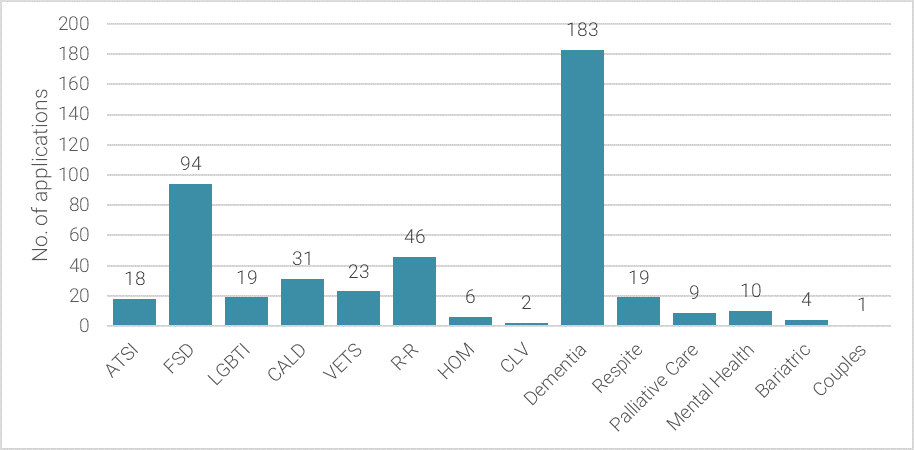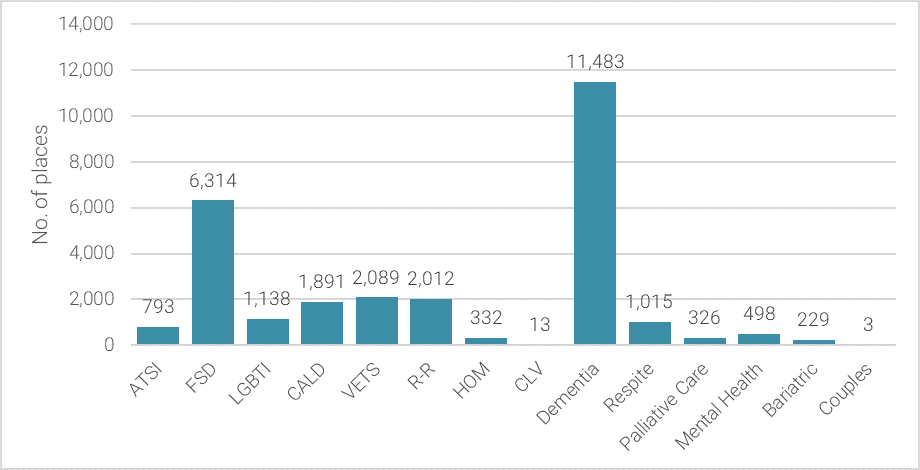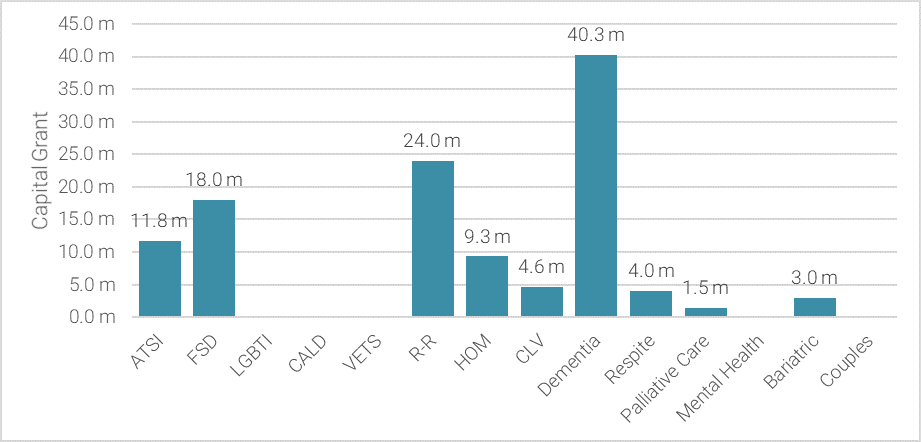Congratulations to all our clients who were successful in the 2018-19 ACAR. For us, the announcement of the allocations is the final stop in a one and half year journey which took us across NSW, VIC, SA, QLD and WA. While we would always like more success, we are pleased with the wins we had in NSW, Qld and WA which included:
- Three new services with over 100 places each
- Top up allocations
- A $4m grant for a regional provider
- Places in a QLD inner-city suburb
For those who were unsuccessful, we share in your disappointment. As part of our resubmission guarantee, we are already working with Pride Living clients to consider next steps.
With only 264 applications approved and 13,500 places allocated in the 2018 – 19 ACAR, success is far from guaranteed.
Experience has taught us that the best chance of success in ACAR comes through understanding the priorities of the Department, giving them confidence that you will meet these and starting early.
From the evidence and our discussions with the Department, the following priorities stood out in the 2018-19 ACAR round:
Special needs and key issues
The number of approved applications and allocation of places across special needs and key issues are shown in Charts 01 and 02.
Chart 01: Approved applications by special need and key issue

Chart 02: Approved places by special need and key issue

Consistent with Department advice, rural and remote (R-R) applications were allocated 2,012 places.
Dementia and financial and social disadvantage (FSD) were the highest priorities with 70% and 36% of approved applications respectively, catering to these key issue/special need.
If your application did not include these priorities, the pool of places available shrinks and you bear a greater risk of being unsuccessful.
As shown in Chart 03, the need for aligned priorities was particularly pronounced for capital grants – no grants were given to applications catering for the special needs of LGBTI, CALD and VETS.
Chart 03: Capital grants by special need and key issue

Geography
The Department categorises need and priority for places across SA3 regions. Need is based on the planning ratio of 7.8 residential aged care places per 1,000 people over 70. Based on the provisional allocation period and other data, we know the Department anticipates places will come online 4 years after allocation. From this, we infer that priority is based on current and projected shortfall of places relative to the planning ratio in the short to medium term.
Table 1 shows the allocation by priority together with the chances of success.
Table 01: Places allocated by SA3 category

Table 01 shows that provider priorities differ from the Departments as most applications (170) were in category 6 locations. While the Dept had a priority on rural regional and remote the industry priority was on metropolitan regions. This may reflect the economics related to RAD as a source of funding or the capacity to achieve higher accommodation revenue.
While the chances of success in low priority regions is low one of our clients achieved success in a category 5 metropolitan area. Their offer was compelling and differentiated.
This application included evidence-based assertions, clear case studies, examples and visualisations. It also addressed the key issues and special needs prioritised by the Department.
Track Record – Compliance
In the ACAR essential guide, section 1.3.7, it was made clear that compliance history would be a consideration in approving applications. While places were allocated to Providers who had non-compliance notices (mostly rural and remote), no places were allocated to Providers who had a facility in sanction during the assessment period.

Getting places online
When places are allocated, the Act anticipates they will become operational within 4 years. Providers who have a demonstrated track record of operationalising places within this timeframe are more likely to have their applications approved. We anticipate this accounts for the relatively high number of places granted to a few Providers
Reducing the risk of failure
While there is no guarantee of success in an ACAR experience has taught us that following some key guidelines significantly improves your chances of success these include:
- Ensure your application is clear and evidence-based
- Address Dept. priorities
- Submission to give confidence to the Department that you will meet their priorities and the time frames you set out
- Do extensive research
- Find a key need that your proposal addresses and that distinguishes it from existing facilities
- Because success is not guaranteed, be prepared to submit multiple times and importantly ensure that you progress according to your last submission in your next submission
- Do not use motherhood statements and cut and paste, the assessors read many submissions, and you need yours to stand out.
Overall our advice is to start early and understand the geographic priority of your targeted SA3 and the key issues/special needs that you are best able to service. Using a third party to assist you effectively gives you a pre-vetting of your application.
If you would like to discuss your next ACAR application, contact me at Bruce.bailey@prideliving.com.au or Joseph.zhang@prideliving.com.au and take advantage of our early bird and resubmission offers.


